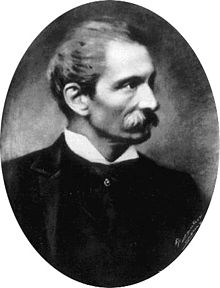Giuseppe Zanardelli
| Giuseppe Zanardelli | |
|---|---|
 |
|
| 16th Prime Minister of Italy | |
|
In office February 15, 1901 – November 3, 1903 |
|
| Monarch | Victor Emmanuel III |
| Preceded by | Giuseppe Saracco |
| Succeeded by | Giovanni Giolitti |
| President of the Italian Chamber of Deputies | |
|
In office November 16, 1898 – May 25, 1899 |
|
| Preceded by | Giuseppe Branchieri |
| Succeeded by | Luigi Chinaglia |
|
In office April 5, 1897 – December 14, 1897 |
|
| Preceded by | Tommaso Villa |
| Succeeded by | Giuseppe Branchieri |
|
In office November 23, 1892 – February 20, 1894 |
|
| Preceded by | Giuseppe Branchieri |
| Succeeded by | Giuseppe Branchieri |
| Italian Minister of the Interior | |
|
In office June 21, 1903 – November 2, 1903 |
|
| Prime Minister | Giovanni Giolitti |
| Preceded by | Giovanni Giolitti |
| Succeeded by | Giovanni Giolitti |
|
In office March 28, 1878 – December 19, 1878 |
|
| Prime Minister | Benedetto Cairoli |
| Preceded by | Agostino Depretis |
| Succeeded by | Agostino Depretis |
| Personal details | |
| Born |
October 29, 1826 Brescia, Italy |
| Died | December 26, 1903 (aged 77) Maderno, Italy |
| Nationality | Italian |
| Political party |
Historical Left Dissident Left |
Giuseppe Zanardelli (October 29, 1826 – December 26, 1903) was an Italian jurisconsult, nationalist and political figure. He was the Prime Minister of Italy from February 15, 1901 to November 3, 1903. He was a distinguished jurist and eloquent orator. Zanardelli, representing the bourgeoisie from Lombardy, personified the classical 19th-century left liberalism, committed to suffrage expansion, anticlericalism, civil liberties, free trade and laissez-faire economics. Throughout his long political career he was among the most ardent advocates of freedom of conscience and divorce.
Giuseppe Zanardelli was born in Brescia (Lombardy). He was a combatant in the volunteer corps during the First Italian War of Independence of 1848 between the Austrian Empire and the Kingdom of Sardinia, within the era of Italian unification (Risorgimento). After the lost battle of Novara he went to Pisa to study law, and he returned to Brescia to become a barrister. For a time earned a livelihood by teaching law, but was molested by the Austrian police and forbidden to teach in consequence of his refusal to contribute pro-Austrian articles to the press.
In 1859 he was forced to flee to Switzerland. He moved to Lugano, but returned in time to organize the insurrection of Brescia in the Second Italian War of Independence and welcomed Giuseppe Garibaldi in the city. Enlisted in the Cacciatori delle Alpi (Hunters of the Alps), he remained in the area until the armistice of Villafranca. With the annexation of Lombardy to Piedmont he was elected to Parliament in Turin.
...
Wikipedia
